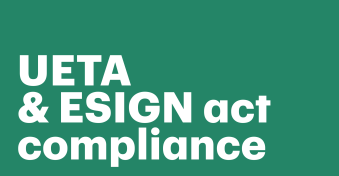With PandaDoc’s new interview series, we aim to leverage the insights of our internal subject matter experts (SMEs), as they’re the ones who closely work with our customers day in and day out.
This collection of interviews will shed light on how these SMEs recommend clients use PandaDoc for their industries and niches, and what are some of the most common (as well as the most unexpected) uses of PandaDoc they’ve seen!
Howdy, Anthony 👋 What’s your experience working with real estate businesses? Based on your interactions, what does their daily routine look like?
Real estate agents actually form a huge subset of the people I closely work with at PandaDoc, mainly because they so often deal with contract negotiations and the hassle of getting signed documents, and that’s an area where we can help them out.
Based on my interactions, I’d say a typical real estate professional spends a huge chunk of their day managing client expectations, showing properties, doing admin work, attending meetings, and getting real-estate contracts sorted — so it’s not really as hunky dory as you see on TV shows.
What really is surprising is how much time they spend managing the nitty-gritty details of admin work and getting all parties to finalize and sign a contract.
I mean, that time really adds up if you go to calculate it.
How do you see e-signature solutions impacting their work? What are the financial benefits these companies can expect?
I have a lot of real estate professionals tell me the reason why they’re considering PandaDoc as a solution (aside from the fact it can help them get signed documents) is because it can help them improve customer experiences and streamline their real estate deals.
If we look at it simply from a logical perspective, an e-signature solution will help realtors streamline their business operations by getting digital signatures in real-time.
However, my recommendation would be to opt for an electronic signature solution that can be coupled as a document management tool too.
You might think I’m biased here because PandaDoc has both capabilities, but this recommendation is simply because, as I said ahead, realtors spend the majority of their time doing admin work and asking their clients to sign contracts — and this recommendation can satisfy both use cases.
As far as the financial benefits of an e-signature solution are concerned, the obvious ones would be you save a lot on printing and paper costs, document storage, manual errors, courier services, postages, etc.
The less obvious financial benefit is you save time on signed document delays (imagine taking 2 days to get a contract signed manually vs. the 2 hours it takes to get a digital signature).
So, there’s a convenience factor that also needs to be considered.
And if you’re a company that focuses on sustainability, you end up doing your fair share for the environment, too, by not purchasing bulks and bulks of paper, or spending on gas that would’ve been used for shipment.
What are some of the features a real-estate company should look at when using an e-signature solution?
You know an electronic signature software is a good fit for your business when it has these tell-a-tale signs:
- It adheres to the E-Sign Act;
- It can help you manage real estate transactions;
- It’s pricing is within your budget range;
- It provides audit trails and document analytics;
- It can handle real-estate documents with ease;
- It integrates with the existing apps/workflows you have; and
- It improves the lifecycle of your real estate transactions.
Some enterprise companies even like to use e-signature solutions that can provide API access, which means these enterprises have the authority to customize it according to their will and use cases.
“That feature of being able to parse field tags was huge. It meant that we could create varying contracts state by state. The API sandbox allowed me to see that this is exactly what we need, so I didn’t go any further with my research with Adobe Sign, HelloSign, and others.” Sam Hales, Saratoga’s software engineer
In this digital age, how can companies expect to keep a balance between personal touch and the use of technology?
The real-estate industry relies on a personal touch to close deals but also needs technology to scale and manage its business operations.
I think a good balance between both is an absolute necessity, and that’s exactly where solutions like PandaDoc shine.
While testing our product, we discovered early on that most of our customers would like to see collaboration capabilities, and that’s something the team worked on.
Now, we offer options to collaborate in real-time with your stakeholders and team members, transfer document ownership, provide role-based permissions, add contacts to your documents, create workspaces, and do lots more.
And because we’re primarily a digital technology, we also offer features you need to scale your real estate business operations, such as audit trails, product integrations, document authentication, management of digital documents, security features, etc.
What about the legality of e-signature solutions? Is the use of such solutions considered legally valid?
E-signature solutions like PandaDoc, DocuSign, Adobe, etc., all adhere to the E-Sign Act, which means that any signature done on their platform is legally valid.
We also offer digital notary services, which help certain real estate brokers ease the process of getting signers onboard to finalize a sale.
Having said that, certain countries and laws don’t allow the use of electronic signatures (or don’t place them at the same level of importance as wet signatures), but that’s a rare exception.
From a sales perspective, have you noticed anything that real estate professionals are particularly interested in? If yes, what have you done to offer these features?
One thing I often hear from real estate professionals is they’re looking for an end-to-end solution.
This basically means they need a solution that can not only manage their documents and e-signatures, but can also manage their transaction process, collect brokerage, and provide insights on client interactions.
This feedback was passed on to the product team, and they improved PandaDoc’s offering to allow the collection of brokerage from multiple payment partners (your clients can use their credit cards, debit cards, PayPal, or ACH to send you payments directly).
Other than that, PandaDoc users also have the option to check document analytics (e.g., you can check when and how many times your clients opened the document), and set up alerts (e.g., you can set up reminders about when your real-estate contracts are about to expire).
What is the best electronic signature for a small real estate company?
I genuinely and whole-heartedly believe PandaDoc is one of the best solutions a small real estate company can opt for, mainly because it’s not only affordable (I mean that’s definitely a bonus), but also because its feature list is not only limited to e-signatures.
Just as an example: Smaller companies might look for a solution that has ready-made resources like templates of real estate contracts and agreements.
Depending on where they are in their journey, they might want a solution that can scale with them, fit into their existing processes, safeguard their information, and be extremely easy to use for all stakeholders — and PandaDoc can offer that.
I think I already touched upon the fact it has extensive collaboration capabilities, so that’s another point that might be worth remembering about.
Disclaimer
PandDoc is not a law firm, or a substitute for an attorney or law firm. This page is not intended to and does not provide legal advice. Should you have legal questions on the validity of e-signatures or digital signatures and the enforceability thereof, please consult with an attorney or law firm. Use of PandaDocs services are governed by our Terms of Use and Privacy Policy.
Originally published April 28, 2019, updated November 9, 2023


